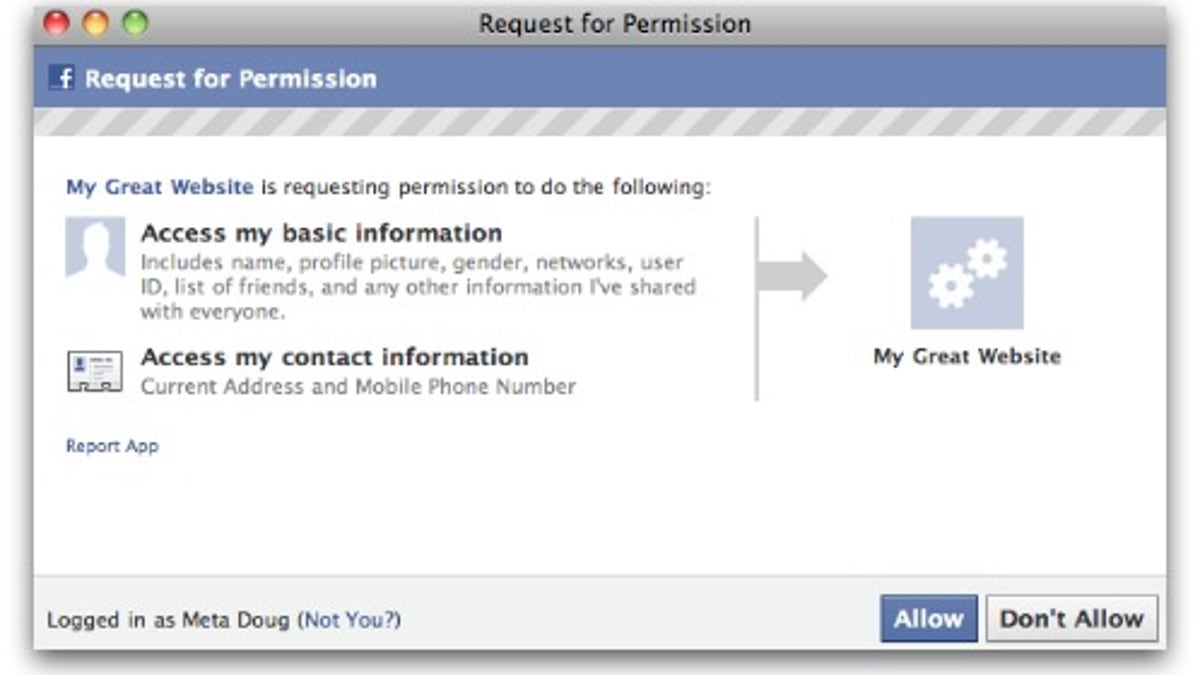
Facebook has temporarily suspended a feature that gives app developers access to your phone number and home address. (Facebook)
The fight for Internet privacy just took a little step forward on Facebook.
The social-networking giant is suspending a controversial new feature that gave app developers access to people's phone numbers and home addresses, according to an announcement made on their developer blog.
The decision came just days after a new policy was announced granting access to the personal data -- and a public backlash over privacy concerns ensued.
“Over the weekend, we got some useful feedback that we could make people more clearly aware of when they are granting access to this data,” Facebook wrote on its developer blog. “We agree, and we are making changes to help ensure you only share this information when you intend to do so. We’ll be working to launch these updates as soon as possible, and will be temporarily disabling this feature until those changes are ready. We look forward to re-enabling this improved feature in the next few weeks.”
Friday’s original announcement sparked protest when Internet security firm Sophos blogged about the new feature, which freely gave your phone number and home address to app developers. Sophos wrote that the policy “could herald a new level of danger” for Facebook members.
Those changes will now roll out “in the next few weeks” so the company can make sure its user permission controls are in place and everything is clear for the user. Facebook maintains that privacy is a priority and that developers would only gain access to their contact information if they explicitly granted permission.
“Facebook should slow users down and convey the dangers of permitting access to contact info more clearly by making this request a separate step with a bold warning, rather than a quiet, uniform addition to the list of permissions users are familiar with,” wrote Inside Facebook writer Josh Constine in a blog post.
“This would reduce the threat without forcing Facebook to adopt an unscalable system.” he added.
The reversal is the latest in a series of controversial steps by the social-networking company, which has been criticized for confusing settings and constant policy changes -- and according to Sophos has been "pushing the boundaries of privacy for a long time."
"People are willing to accept the constant evolution of technology, but are not always willing to accept others' ideas of how their privacy should evolve along with it," said Sophos senior security analyst Chester Wisniewski in a follow-up post.
